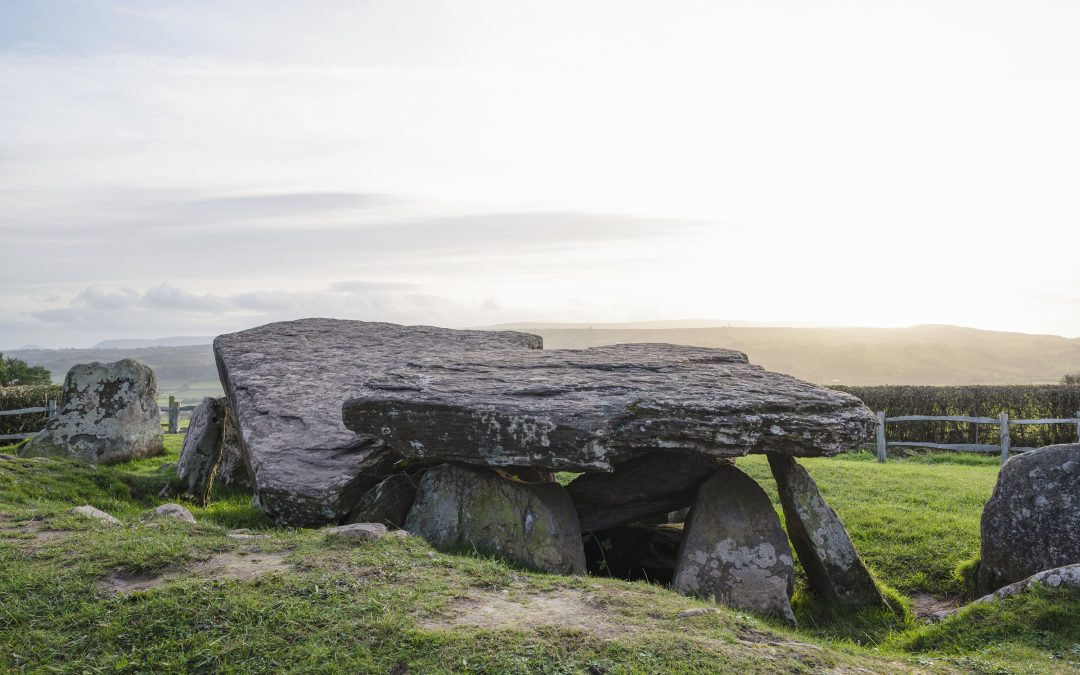For a final summer, members of the public will get the chance to get up close to archaeological excavations being carried out at Arthur’s Stone.
Tours of the mysterious and evocative English Heritage site also took place in 2022 and 2023 as part of a project to investigate early prehistoric Herefordshire, undertaken by The University of Manchester, Cardiff University and the American Institute for Field Research, in partnership with English Heritage.
The project has significantly changed academic understanding of how the monument was used, and its team hope to uncover more of its secrets in 2024.
Arthur’s Stone is a Neolithic burial chamber comprising nine upright stones and a gigantic 25 tonne capstone. Situated on a hillside of Herefordshire’s Golden Valley, the 5,700-year-old site is most famous for its links to legends of King Arthur and for being a source of inspiration for the stone table in CS Lewis’s The Lion, The Witch, and The Wardrobe.
So far, the project has started to unravel a complex sequence of changes to the monument spanning about seven centuries in the early Neolithic (3,700 – 3,000 BCE). We now know that it started as a stone chamber or ‘dolmen’ in the 37th century BCE encircled by a thick stone ring, with an entrance on the north. It was later re-oriented to face south and remodelled within a long cairn faced by drystone walls, with a false entrance between two projecting ‘horns’ of the cairn.
The archaeologists found evidence for an avenue of wooden posts leading to the new entrance which were replaced some centuries later with standing stones. It now looked more like the Long Barrows at Belas Knap and Stoney Littleton (also cared for by English Heritage). A narrow passage was built into one side of the cairn so that the old entrance could still be reached. Inside the passage they found pottery, bone, pitchstone from the Isle of Arran and rock crystal, probably brought from North Wales.
This year the excavation team will be continuing to trace the course of the timber and stone avenue down into the Golden Valley, as well as investigating a mysterious circular structure that showed up on drone survey in the field to the south of the monument. They will also aim to clarify the sequence of the construction of the stone chamber and long cairn.
Julian Thomas, Professor of Archaeology at The University of Manchester, said: “Arthur’s Stone is a nationally important prehistoric monument in an unrivalled landscape setting. Until now it has been very poorly understood, but our work this year will complete the process of putting together a comprehensive history of the site, enabling future generations to fully appreciate this magnificent structure”.
Visitors to Arthur’s Stone will be able to join exclusive guided tours between 3 – 25 July that explain the history of the site and share updates on the progress of excavations. Led by a team of English Heritage volunteers, the tours will bring the findings from this remarkable project to life. Tours will take place three times a day and pre-booking online is essential to secure a place.
Ginny Slade, Volunteer Manager at English Heritage, comments: “Over 2,000 people came to our tours and local lectures on the project in 2023 which was incredible – particularly for those lucky enough to see a new discovery being unearthed in front of them. Given that we may not see archaeological excavations on this scale carried at Arthur’s Stone again for some years, we’d recommend coming to have a look if you’ve visited the site before or want to experience its magic for the first time.”
For more information, visit www.english-heritage.org.uk/visit/places/arthurs-stone/

